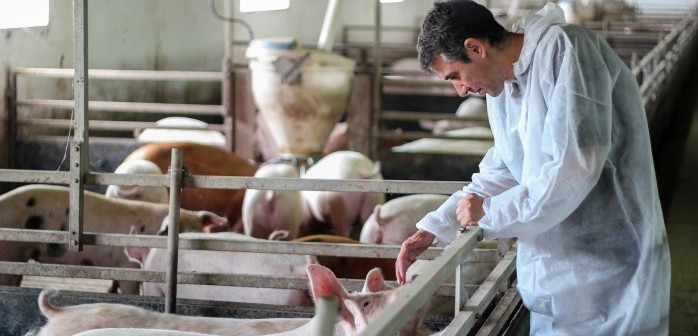The EU ban on prophylactic use of antibiotics in groups of animals has been confirmed following discussions between the main decision making bodies in Brussels.
The decision means that when the revised EU Regulation on Veterinary Medicinal Products comes into force in three years’ time, vets will only be able to prescribe antibiotics to prevent disease for administration to individual animals. This could have major implications for the way pig health is managed and will need to be handled very carefully, according to NPA senior policy advisor Georgina Crayford.
The relevant part of text states: “Antimicrobial medicinal products shall not be used for prophylaxis unless, in exceptional cases for the administration to an individual animal or a restricted number of animals when the risk of an infection or of an infectious disease is very high and the consequences are likely to be severe. In such cases the use of antibiotic medicinal products for prophylaxis shall be limited to the administration to individual animal only, under the conditions laid down in the first sentence.”
In a recent letter to CVO, Christine Middlemiss, NPA chairman Richard Lister and PVS president Duncan Berkshire expressed ‘extreme concern’ at the proposal and attached an NPA briefing setting out why the two organisations believe it could compromise pig health.
The document, which can be viewed here, agrees that prophylaxis should not be deployed unless, in ‘exceptional cases’ but it says limiting it to individual animals is ‘unnecessary and risks seriously impacting pig health’.
The document stresses that there are a number of circumstances where targeted prophylaxis is the best course of action to protect animal health and welfare where pigs are housed in groups. It highlights the ‘absurdity’ of expecting vets to ‘stand by’ where a pathogen is known to be present on a farm and there is a high likelihood of pigs becoming infected, and only be allowed to prescribe antibiotics once those pigs show signs of clinical disease.
Providing the vet prescribes antibiotics according to good stewardship principles, the risk of development of antibiotic resistance should be minimal, it concludes.
Dr Crayford said: “The NPA is working with RUMA, PVS and others to fully understand how this piece of legislation will be interpreted and what the implications will be for disease management in pigs.
“We fully agree, of course, that prophylaxis should not be deployed routinely and only in exceptional circumstances. But we see no logic in prohibiting its use in groups of pigs, when it is deemed necessary for pigs’ health.”




